第99章 CHAPTER XXXIV.(3)
By this time Melbury's mood had a little mollified. Everything here was so pacific, so unaggressive in its repose, that he was no longer incited to provoke a collision with Fitzpiers or with anybody. The comparative stateliness of the apartments influenced him to an emotion, rather than to a belief, that where all was outwardly so good and proper there could not be quite that delinquency within which he had suspected. It occurred to him, too, that even if his suspicion were justified, his abrupt, if not unwarrantable, entry into the house might end in confounding its inhabitant at the expense of his daughter's dignity and his own.
Any ill result would be pretty sure to hit Grace hardest in the long-run. He would, after all, adopt the more rational course, and plead with Fitzpiers privately, as he had pleaded with Mrs.
Charmond.
He accordingly retreated as silently as he had come. Passing the door of the drawing-room anew, he fancied that he heard a noise within which was not the crackling of the fire. Melbury gently reopened the door to a distance of a few inches, and saw at the opposite window two figures in the act of stepping out--a man and a woman--in whom he recognized the lady of the house and his son- in-law. In a moment they had disappeared amid the gloom of the lawn.
He returned into the hall, and let himself out by the carriage- entrance door, coming round to the lawn front in time to see the two figures parting at the railing which divided the precincts of the house from the open park. Mrs. Charmond turned to hasten back immediately that Fitzpiers had left her side, and he was speedily absorbed into the duskiness of the trees.
Melbury waited till Mrs. Charmond had re-entered the drawing-room, and then followed after Fitzpiers, thinking that he would allow the latter to mount and ride ahead a little way before overtaking him and giving him a piece of his mind. His son-in-law might possibly see the second horse near his own; but that would do him no harm, and might prepare him for what he was to expect.
The event, however, was different from the plan. On plunging into the thick shade of the clump of oaks, he could not perceive his horse Blossom anywhere; but feeling his way carefully along, he by-and-by discerned Fitzpiers's mare Darling still standing as before under the adjoining tree. For a moment Melbury thought that his own horse, being young and strong, had broken away from her fastening; but on listening intently he could hear her ambling comfortably along a little way ahead, and a creaking of the saddle which showed that she had a rider. Walking on as far as the small gate in the corner of the park, he met a laborer, who, in reply to Melbury's inquiry if he had seen any person on a gray horse, said that he had only met Dr. Fitzpiers.
It was just what Melbury had begun to suspect: Fitzpiers had mounted the mare which did not belong to him in mistake for his own--an oversight easily explicable, in a man ever unwitting in horse-flesh, by the darkness of the spot and the near similarity of the animals in appearance, though Melbury's was readily enough seen to be the grayer horse by day. He hastened back, and did what seemed best in the circumstances--got upon old Darling, and rode rapidly after Fitzpiers.
Melbury had just entered the wood, and was winding along the cart- way which led through it, channelled deep in the leaf-mould with large ruts that were formed by the timber-wagons in fetching the spoil of the plantations, when all at once he descried in front, at a point where the road took a turning round a large chestnut- tree, the form of his own horse Blossom, at which Melbury quickened Darling's pace, thinking to come up with Fitzpiers.
Nearer view revealed that the horse had no rider. At Melbury's approach it galloped friskily away under the trees in a homeward direction. Thinking something was wrong, the timber-merchant dismounted as soon as he reached the chestnut, and after feeling about for a minute or two discovered Fitzpiers lying on the ground.
"Here--help!" cried the latter as soon as he felt Melbury's touch;"I have been thrown off, but there's not much harm done, I think."
Since Melbury could not now very well read the younger man the lecture he had intended, and as friendliness would be hypocrisy, his instinct was to speak not a single word to his son-in-law. He raised Fitzpiers into a sitting posture, and found that he was a little stunned and stupefied, but, as he had said, not otherwise hurt. How this fall had come about was readily conjecturable:
Fitzpiers, imagining there was only old Darling under him, had been taken unawares by the younger horse's sprightliness.
Melbury was a traveller of the old-fashioned sort; having just come from Shottsford-Forum, he still had in his pocket the pilgrim's flask of rum which he always carried on journeys exceeding a dozen miles, though he seldom drank much of it. He poured it down the surgeon's throat, with such effect that he quickly revived. Melbury got him on his legs; but the question was what to do with him. He could not walk more than a few steps, and the other horse had gone away.
With great exertion Melbury contrived to get him astride Darling, mounting himself behind, and holding Fitzpiers round his waist with one arm. Darling being broad, straight-backed, and high in the withers, was well able to carry double, at any rate as far as Hintock, and at a gentle pace.